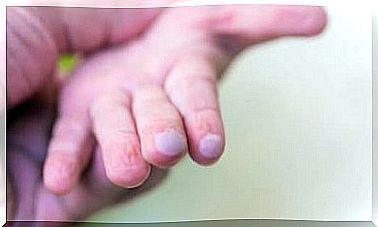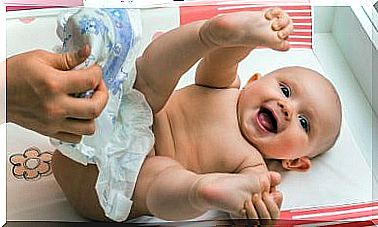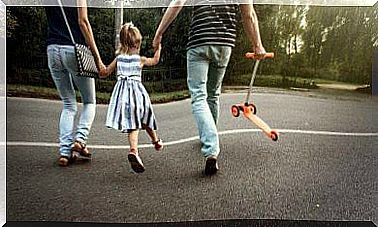What Can I Do If My Child Cries For Little Things?

Crying is one of the most common ways to express oneself in infants and young children. When your baby cries, it is usually a way for him to get your attention and care when he needs it.
During this period, many parents wonder why their children cry when there seems to be no reason.
Below we discuss a number of ideas, tips and situations that are easy to identify.
The main reasons why children cry
Babies and young children often complain and cry when they are hungry and tired because they are extra sensitive to these stimuli.
But there are also other reasons, such as:
- When the child notices that he only gets attention when he cries.
- When crying becomes the perfect way to always get what she wants. Parents tend to soften when there are tears and eventually give the child everything he wants.
- If the child is physically uncomfortable. Changing the baby’s position often is important to avoid discomfort and irritation, and also makes it easier to keep him clean.
- Pain. When children are young, they are in a constant state of adjustment, and on more than one occasion they will feel pain. In particular, children tend to cry when they suffer from stomach pain, whether it is due to gas, constipation or colic.
- Loneliness. Although the child may be physically well, she may need more time, care and protection from those around her, especially from her parents.
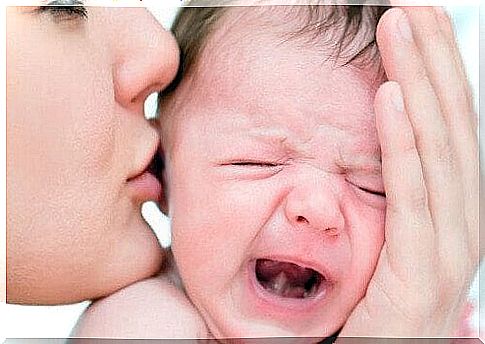
What should you do when your child cries for everything and nothing?
In the beginning, it is normal not to know what to do with a child who cries for the smallest child.
Here are some tips and tricks that you can follow so that the situation does not become unpleasant for both of you.
- Try to identify the child’s crying and its causes by associating them with different contexts and situations.
- If you can not take care of him at that moment, try to make him understand that you are aware that he needs you and that you will help him as soon as possible.
- If your child is learning to talk – ask her to say in words what is happening.
- Respond to his cries in different ways: with loving gestures, kisses, hugs or words of encouragement.
The crying and the imitation stage
During their development, children experience a stage when they show a greater ability to imitate others.
It often occurs at an early age, already in infancy, and lasts until 2 or even 3 years of age.
During this time , children tend to imitate others when they cry or laugh. It can be described as a contagious effect in the sense that it can only be hindered by one’s own maturity.
This is a predictable type of behavior at certain ages. Therefore, you do not have to worry because it will fade as the baby grows and matures.
To cry when to start school
However, should this behavior continue longer than normal, perhaps right into school age, then we should be very observant.
At this stage, there are several causes that can lead to crying: a problem at school, quarrels with siblings or peers, or just something they do not like.
In this case, you need to be patient and find out what situations are bothering your child for a period of time.
In other words – it is important to assess the situations that lead to crying, but also the degree to which they occur.
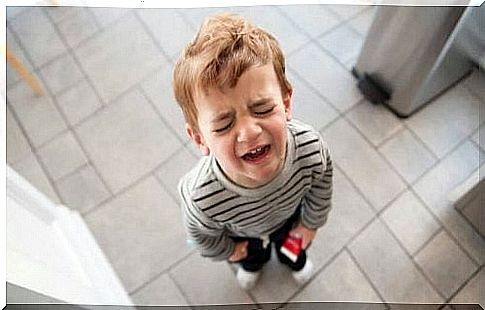
Crying and high sensitivity
Finally – the most extreme is high sensitivity. Highly sensitive children tend to be more observant – so much so that they can be excited by any stimulus.
Therefore, they develop a lively imagination and creative capacity.
The most effective advice for helping children with these traits is to allow them to express their innermost feelings.
The most important thing for them is to show their feelings for the world. To help them do that, we must remove all obstacles that stand in the way.
The stage when a child cries for everything is really transient. During this period, parents become the fundamental pillars that can prevent uncomfortable and unpleasant situations for the family and, above all, for the child.
The parents’ behavior when dealing with a crying child is of the utmost importance. It is crucial that you follow the correct procedure to help the child get over this stage.




